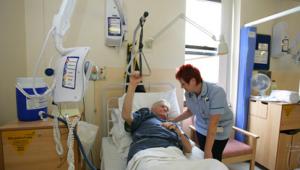By Richard Johnstone
27 April 2011
The government’s planned restructure of the NHS contains a variety of risks that could prevent the service from saving £20bn in the next three years, MPs have found.
A report by the Public Accounts Committee, published today, identifies the risks associated with the government’s Health and Social Care Bill, which was halted earlier this month for further consultation.
The Bill proposes replacing the current structure of primary care trusts with GP commissioning consortiums. The PAC notes that while the Department of Health estimates the changes will cost £1.4bn, the King’s Fund health think-tank says it could be as much as £3bn.
Committee chair Margaret Hodge said that ‘whilst the reforms could complement the imperative of achieving £20bn efficiency gains by 2014/15, the reorganisation might also distract those responsible for making the savings while safeguarding standards of patient care’.
She added: ‘Furthermore, if the department’s estimate of the one-off costs associated with reorganisation turns out to have been too low, it will make the challenge of achieving savings for reinvestment even tougher.’
The committee calls for clarification in a number of areas in the shake-up, including revising the ‘complex’ accountability arrangements. The department must be ‘explicitly clear’ on what will happen if a GP consortium or foundation trust hospital failed, and who would be liable for their debts.
The DoH said it welcomed the report as part of the consultation, adding thata staged transition programme was in place for the reforms, and that they would strengthen accountability to Parliament.
Health Secretary Andrew Lansley said: ‘The efficiency challenge and our reforms are inextricably linked. Our reforms help the NHS make savings, because getting rid of tiers of bureaucracy will mean an extra £1.7bn each year to reinvest in patient care.‘
But BMA chair Dr Hamish Meldrum said that the committee was ‘right to highlight the risks posed by such a massive restructuring at a time of financial crisis’.
He added: ‘However, it is not just the timing, but also the direction of travel of these reforms that will cause problems. We share the concerns of the committee that the consequences of increasing competition in the NHS have not been fully addressed. Market failures in health care have far more serious consequences than in other industries – and may have little connection with quality of care, or even patient demand.’
Unison called on the government to not progress with the ‘titanic’ reforms, which it said would lead to a postcode lottery.
The union’s head of health Christina McAnea said: ‘Along with many other major health organisations and patient groups, Unison has long been warning that the Bill is the wrong prescription for the NHS. And the evidence just keeps on mounting. It's time for this Bill to be shelved for good, not just temporarily be put on hold.’



















